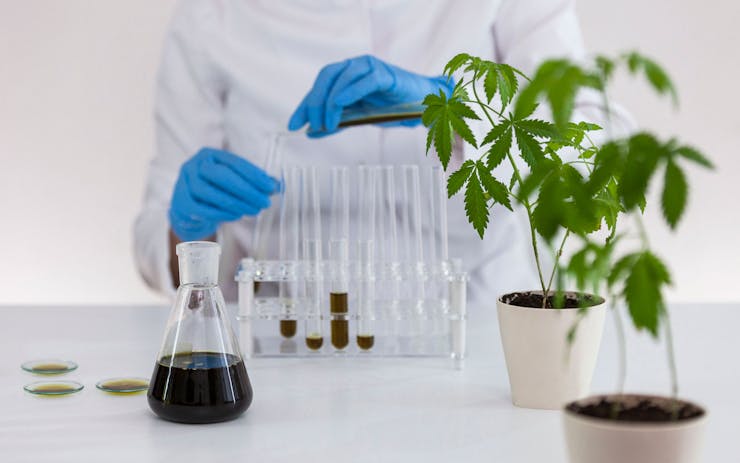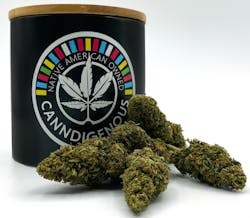Officials with the U.S. Food & Drug Administration (FDA) issued a stern warning about CBD products on Nov. 26, advising consumers that “CBD has the potential to harm you, and can happen even before you become aware of it.”
What are the FDA’s concerns? Should you be worried too?
The FDA’s public announcement aired concern over CBD’s potential to:
- Interact in unknown ways with other drugs
- Elevate sedation and drowsiness
- Cause diarrhea and/or decreased appetite
- Increase irritability and agitation
- Cause liver injury
Of these concerns, the first four are relatively minor and not unexpected. The major concern is the possibility that CBD could negatively affect the liver. That’s serious, and it’s a potential showstopper. The FDA’s painful history with a category of anti-inflammatory pain relievers known as NSAIDS (which include common products like Advil) is likely informing the agency’s response to CBD—and has made officials extra cautious when it comes to new drugs and potential liver damage.
What’s the cautionary history?
From the late 1990s to the mid-2000s, a number of newly developed NSAIDs came onto the market. Several were subsequently withdrawn from the United States, the UK, the European Union, and other nations due to their adverse effects on the liver. Drug-induced injury is the leading cause of liver failure in the US.
The FDA got burned on NSAIDs causing liver damage in the late 1990s and early 2000s.
One study that looked at the experience with those NSAIDs found that elevated levels of an enzyme known as ALT might have been an early red flag. ALT is found mostly in liver and kidney cells, and when liver cells are damaged or die, more ALT is released into the bloodstream. An elevated ALT level can be detected in the blood, which is why that’s considered an indicator of potential liver injury.
More specifically, 3% of patients in an early study of a potent NSAID painkiller known as Duract showed elevated ALT levels. Duract was approved by the FDA in 1997, but was quickly withdrawn the next year following reports that it caused liver failure and death in some patients. The Duract experience became an embarrassment for the FDA—witness headlines like “Duract, Approved by the FDA, Turned Into a Lethal Failure” in The Wall Street Journal.
How does that relate to CBD?
The best data the FDA has on CBD comes from studies done on Epidiolex, the CBD-based pharmaceutical drug developed by GW Pharma. The FDA approved Epidiolex last year to treat severe forms of epilepsy. It contains extremely high doses of CBD and is available by prescription only.
Some patients taking very high CBD doses showed elevated ALT levels.
In tests done on Epidiolex, 3% of adult patients who took 550 mg to 900 mg of CBD daily recorded elevated ALT levels. Among patients who took a placebo (no CBD at all), 1% recorded elevated ALT levels. Given the sample size, though, that’s not especially concerning. Two of 291 placebo patients had elevated ALT levels, whereas 2 of 67 lower-dose CBD patients had elevated levels. If just one of those two in the latter group had normal ALT levels, the difference between CBD and placebo would hardly be notable. At that point you’re almost dealing with random chance.
At a higher dose of CBD, though, elevated ALT levels were significant and alarming. Of 228 patients given 20 mg per kg of body weight daily (a range of 1,100 mg to 1,800 mg of CBD), 18% recorded elevated ALT levels. That’s significant, and it indicates that a high dose of CBD can have an effect on the liver.
Does dosage matter?
It’s worth noting that the studies on Epidiolex involved subjects ingesting more than ten times the normal dose of today’s over-the-counter CBD products.
Most of today’s unregulated CBD products contain between 50 mg and 1,000 mg of CBD per packaged unit. A typical jar of CBD gummies contains 30 gummies dosed at 10 mg each.
Patients in the Epidiolex studies ingested between 550 mg and 1,800 mg of CBD per day.
More specifically: Some patients were given a placebo, some were given 10 mg of CBD per kg of body weight, and some were given 20 mg of CBD per kg of body weight. So a 200-pound (90kg) man on the highest dose received 1,800 mg per day. That’s six jars of CBD gummies per day.
That’s not outrageous, by any means. Treating severe epilepsy with CBD requires its own unique dosage. But those are not the dosages we’re seeing in today’s over-the-counter CBD market.
More helpful context
Common NSAIDs like Advil also carry liver risks at high doses, as do acetaminophen products like Tylenol. The FDA’s concern today is that we don’t yet have the kinds of studies and dosage information on CBD that exist with Advil, Tylenol, and other FDA-approved products.
FDA officials hinted at these CBD concerns clear back in late May at the first public hearing regarding CBD regulations. At that forum, FDA leaders often pressed for information about potential drug interactions and negative side effects.
Their focus wasn’t so much on CBD’s beneficial potential as on its possible risks. Which is their job. The FDA doesn’t exist to promote food and drugs. It exists to protect the public from harmful food and drugs. Yesterday’s FDA warning wasn’t the agency’s final word on CBD, by any means. Many people are consuming CBD but the FDA doesn’t yet have sufficient studies to prove either safety or risk. Those may arrive in the coming months, and until then it’s worth making personal decisions about CBD using the best available information within its full context.





